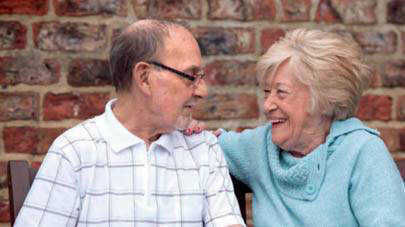- Home
- Media centre
- Press room
- The power of drama, music and dance in helping people with dementia
26 September 2017
The power of drama, music and dance in helping people with dementia
The Beth Johnson Foundation (BJF) and older people’s charity, Anchor, have launched a new report that recommends the innovative use of drama, music and dance in care homes to help people living with dementia.
‘Experiences of Being’ details the use of drama, music and dance in 17 care homes across Surrey run by Anchor, England’s largest not-for-profit provider of housing and care for older people. The report shows the positive effect it has, particularly for those living with dementia, the biggest cause of death in the UK.
The study, funded by the Beth Johnson Foundation, found that creative activities can soothe and stimulate at the same time, bring back memories from the past, and help to engage underused but still active areas of the brain.
With research from Dementia UK showing that one in three people born in the UK will develop dementia in their lifetime, the study was commissioned in response to the need to improve the quality of life for those living with the condition.
For six months, Anchor trialled the integration of drama, music and dance workshops into its dementia care offering the sessions at 17 of its care homes in Surrey, with over 200 residents benefitting from the scheme. With many proven benefits, all participating homes have since introduced the workshops to the list of activities full-time.
The benefits included improved wellbeing and an increased quality of life. Positively impacting mental health, the workshops strengthened the self-esteem and self-confidence of residents. While musical activities helped improve cognitive ability and memory recall.
On a physical note, the sessions inspired increased movement and physical exercise from residents through the encouragement of dance or subtle actions with hands or feet.
BJF and Anchor hope the report encourages all those working with older people across the UK to consider the use of arts-based activities to bring positivity and creativity into the lives of those living with dementia.
This work is endorsed by Russell Grant, a passionate supporter of dementia research having lost his beloved grandmother to Alzheimer’s: he was her carer for nine years. Russell comments: “As our understanding of dementia increases we realise how enjoyable creative arts can be, not only for people with dementia but for their families too. Whether it’s listening to music, dancing, painting or colouring. There may not be a cure for dementia yet but one of the biggest lessons I’ve learnt is to make the most of the time you have left, and to have fun together while you still can.”
Linda Marlowe who played the part of Sylvie Carter in EastEnders for over two years (Sylvie had dementia) said: “I had done some research back before I got the role of Sylvie because there was a one woman show I had intended to do about somebody with dementia, and I visited this beautiful care home down in Cornwall. I was there for three days spending time with the residents who had dementia to various degrees. This was invaluable in playing my role in EastEnders. I am now committed to promoting the use of drama and the arts to make a positive difference to help those who are living with dementia”
Jane Ashcroft CBE, Chief Executive of Anchor, said: "At Anchor, we’re passionate about ensuring that older life is for living and providing the best possible care for those living with dementia. We’re keen to embrace innovative ways to enhance the lives of our residents and, with such positive results, this project has been a pleasure to be part of. I hope others learn from the report and are encouraged to introduce similar creative activities."
Colin Hann, Executive Chair of BJF said: "We love working on projects such as this: where we fund and support initiatives that explore and then highlight inspiring and imaginative solutions to challenges in people’s lives. Dementia is an area for more work and creative thinking and this report shows how the arts and drama can make an important positive contribution to those who have dementia...in the longer term let’s also work to find a cure."
This website uses cookies which track activity so that you get the best possible experience. By continuing to use this website we will assume you are happy and cookies will be set. You can change your cookie settings at any time.












